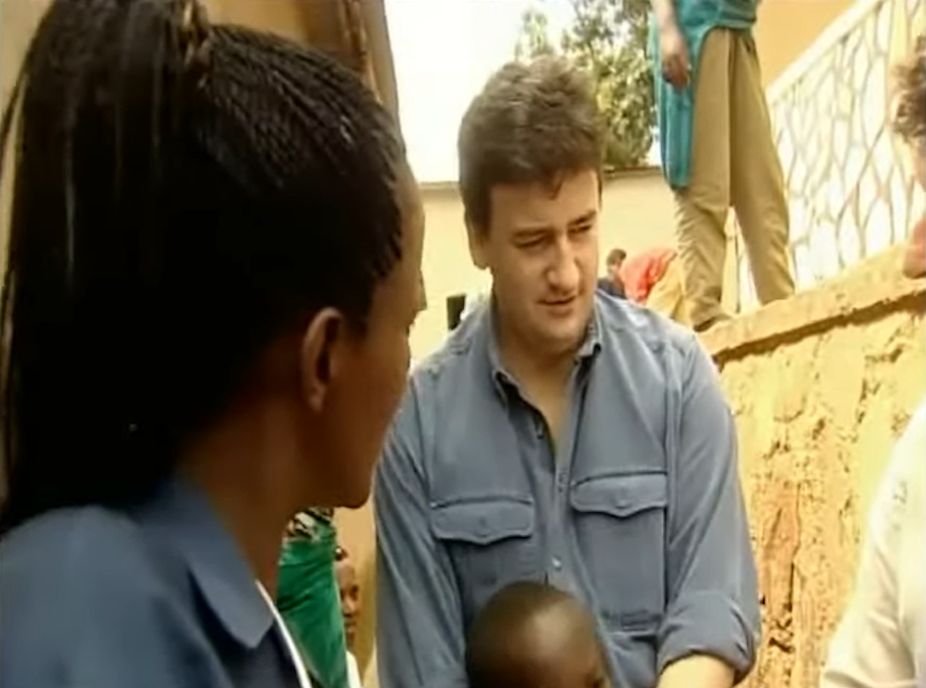
BBC Africa Editor, Fergal Keane, in a still from the 2001 film about the Rwanda genocide, Hope in Hell. Comic Relief
In the hard-nosed world of journalism, admitting to suffering from Post-Traumatic Stress Disorder (PTSD) has traditionally been taboo – a sign of weakness never to be admitted to colleagues in the newsroom where the remedy was often a stiff drink or two. Despite repeated efforts over the past decade to draw attention to the dangers of mental illness faced by foreign correspondents, that stigma has not gone away.
It can only be hoped that may change now that one of the BBC’s most high-profile correspondents, Fergal Keane, has shared publicly the PTSD he has been tussling with privately for several years.
The BBC announced that after decades of covering conflict, its veteran war reporter would be changing his role from that of Africa editor to “further assist his recovery”. The corporation’s head of newsgathering, Jonathan Munro, said: “It is both brave and welcome that he is ready to be open about PTSD.”
Keane is not the first correspondent by any means to have shared in public the impact that covering a relentless diet of conflict, crisis and disaster can have on even the most resilient human being. His BBC colleague Jeremy Bowen, Middle East editor, spoke about his own diagnosis of PTSD in 2017, characterised by bouts of depression related to his work.
Continue reading
Labels:
journalism, BBC, trauma, war_reporting, PTSD,
No comments:
Post a Comment